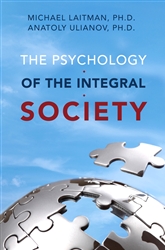
- The wisdom of Kabbalah (the wisdom of reception) first appeared about 5,000 years ago, when humans began to ask about the purpose of their existence. Those who knew it were called “Kabbalists,” and had the answer to life’s purpose and to the role of humanity in the universe.
- But in those days, the desires of most people were too small to strive for this knowledge. So when Kabbalists saw that humanity did not need their wisdom, they hid it and secretly prepared it for a time when everyone would be ready for it. In the meantime, humanity cultivated other channels such as religion and science.
- Today, when growing numbers of people are convinced that religion and science do not provide the answers to life’s deepest questions, they are beginning to look elsewhere for answers. This is the time that Kabbalah has been waiting for, and this is why it is reappearing—to provide the answer to the purpose of existence.
- Kabbalah tells us that Nature, which is synonymous with the Creator, is whole, altruistic, and united. It tells us that we must not only understand Nature, but we must also want to implement this manner of existence within ourselves.
- Kabbalah also tells us that by so doing we will not only equalize with Nature, we will understand the Thought that stands behind it—the Master Plan. Finally, Kabbalah states that by understanding the Master Plan, we will become equal to the Master Planner, and that this is the purpose of Creation—to equalize with the Creator.

The above text was taken from the book Kabbalah Revealed: A Guide To A More Peaceful Life by Dr. Michael Laitman with foreword by Prof. Ervin Laszlo. Also available as eBook (PDF, Kindle & ePub formats), and for free PDF download.


